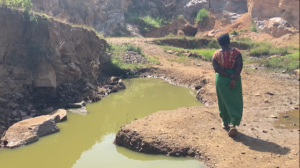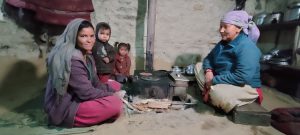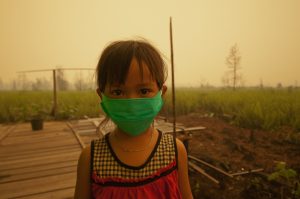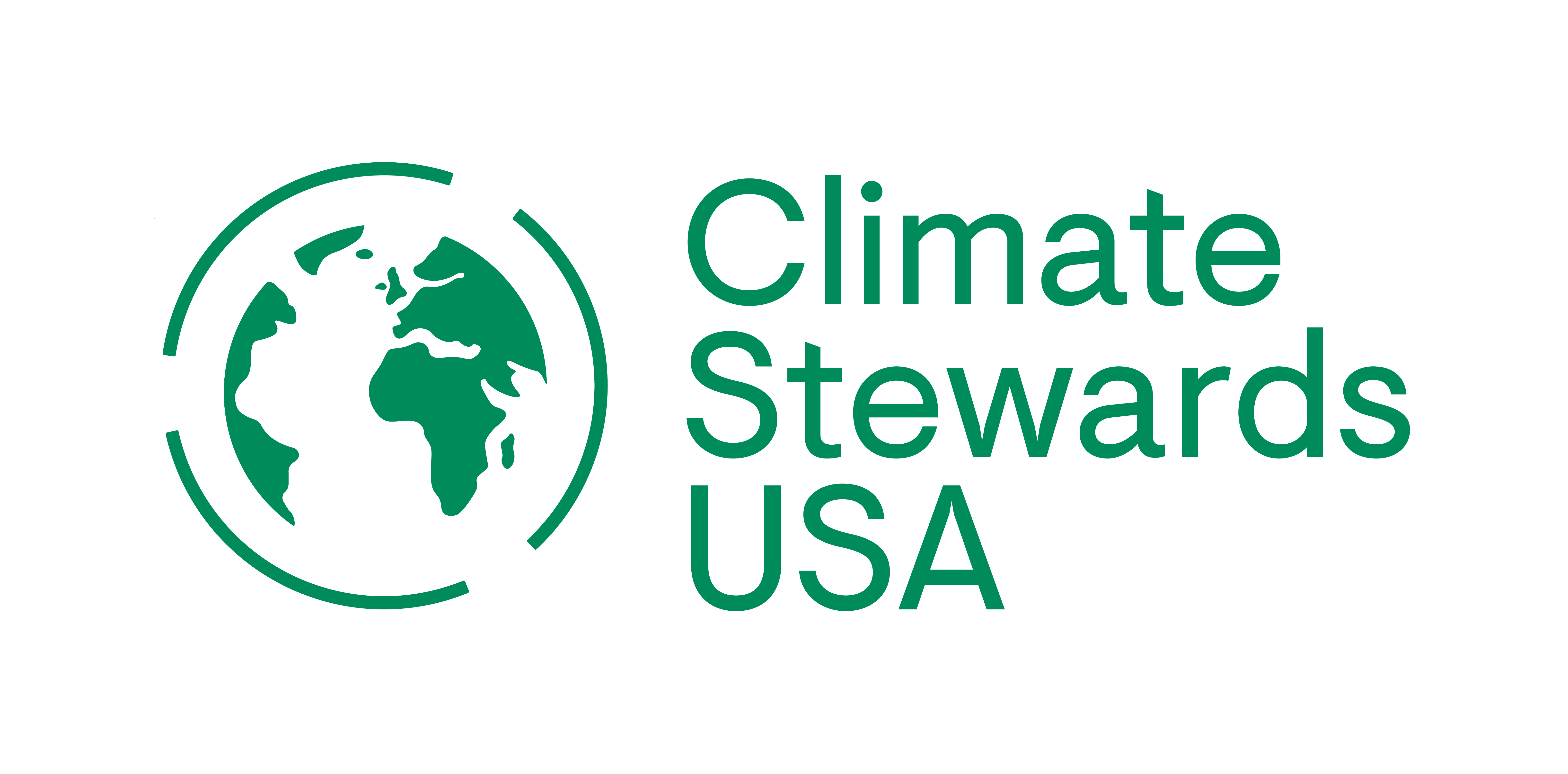In 2022, student Aniek ten Berge spent five weeks with Climate Stewards partner A Rocha Uganda investigating the reasons why some families give up using their water filters despite the benefits they bring. Our regular monitoring had already highlighted this issue; we had reduced our carbon stocks accordingly and were taking steps to address these losses.
As a result of Aniek’s detailed research, we have funded A Rocha Uganda to increase the frequency of support visits, double the number of BSF buddies (local people who support water filter users) and invite successful filter users to train others.
Thank you, Aniek!
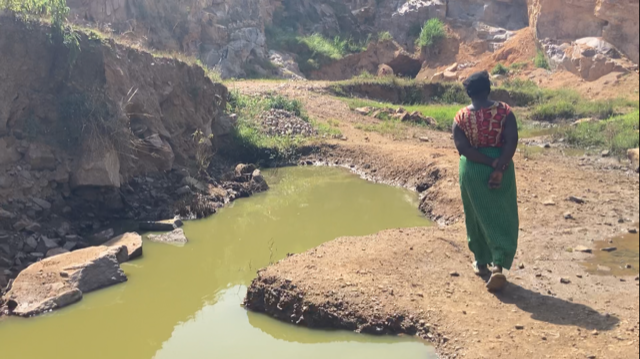
Why would people (not) use their biosand water filter?
Last year I was asked by Climate Stewards to conduct research on why some beneficiaries in the biosand water filter project stop using their filter despite initial positive reactions.
I spent a total of five weeks in Uganda and visited 100 households with A Rocha Uganda staff. I discovered that while over 90% of households are using their filters correctly, there are some who are not, for a variety of reasons. I considered what would help to increase the success rate of the filters.
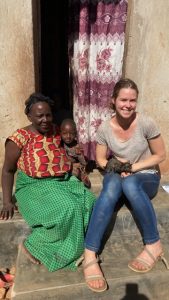 Soon it became clear that these filters are life-changing for the people in many ways. Every beneficiary, including some children, noticed at least one of the following advantages of the filter: better quality water resulting in a reduction of diseases, and saving money and time. 100% of the interviewed users would recommend the filter to others.
Soon it became clear that these filters are life-changing for the people in many ways. Every beneficiary, including some children, noticed at least one of the following advantages of the filter: better quality water resulting in a reduction of diseases, and saving money and time. 100% of the interviewed users would recommend the filter to others.
Filtered water is shared with neighbours, customers and workers in at least half the households, particularly in the households where many people know how to use the filter. However, transfer of knowledge within the household does not always happen properly, which means that families rely heavily on the trained person, most often the wife or mother.
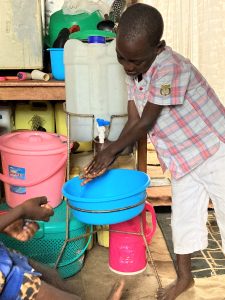 Climate Stewards and A Rocha Uganda organise education and follow-up locally and regularly. They also ensure proper after-care once filters have been handed out, resulting in higher user-rates than other biosand water filter projects. Most beneficiaries agreed that the training from A Rocha Uganda was enough, but they sometimes forget information about maintenance as time passes.
Climate Stewards and A Rocha Uganda organise education and follow-up locally and regularly. They also ensure proper after-care once filters have been handed out, resulting in higher user-rates than other biosand water filter projects. Most beneficiaries agreed that the training from A Rocha Uganda was enough, but they sometimes forget information about maintenance as time passes.
Due to men and children’s work and school obligations, it is mainly women that come to the initial sessions where they build a filter and are taught how to use and maintain it. To reduce the loss of information and dependence on the trained household member, I recommended more collaboration with schools and churches, providing knowledge and skills to children and men, and increasing knowledge within the whole community.
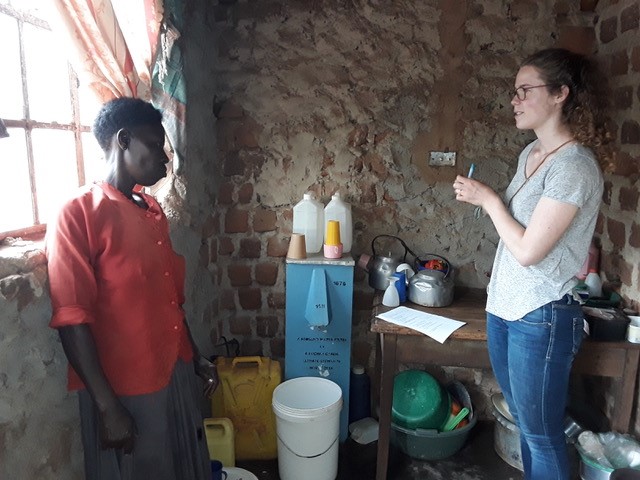
Biosand water filter projects can increase the chances of breaking out of the poverty cycle.
Poverty can play a role in water-related projects. A little over 40% of households in Uganda live under the international poverty line of US$1.90 per person per day. Despite average daily savings (through using less fuel) of up to1800 UGX ($0.48) people often do not invest this in something that would provide long-term benefits, as they are simply trying to make ends meet; money is often spent on food or household items straight away.
Previous research shows that people experiencing poverty-induced stress are more likely to make decisions that only benefit the short-term and find it harder to adapt to changes, including changes in household water treatment. This is also a reason why the poorest families often give up on their filter the quickest. What many beneficiaries are unaware of, however, is that if they could invest a little bit of money in their future each day, by the end of a month or year, a child can go to school or a small business can be started with the saved money.
The outcomes of this research will help Climate Stewards in improving user rates of the project even further while working on user satisfaction. It also shows that biosand water filter projects have the potential to support families in increasing their chances of getting out of poverty, like Suzan’s family, whose story is featured below.
Suzan's story
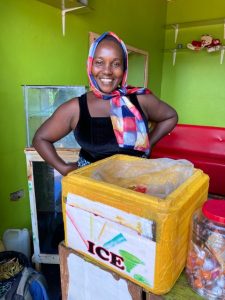 Suzan Nakazzi has a family of 6, and uses filtered water not only for drinking, but for personal hygiene and doing dishes as well. With the filter, the family experienced improved water quality and a reduction in diseases, mainly typhoid and skin problems.
Suzan Nakazzi has a family of 6, and uses filtered water not only for drinking, but for personal hygiene and doing dishes as well. With the filter, the family experienced improved water quality and a reduction in diseases, mainly typhoid and skin problems.
Suzan decided to not only keep the clean water for her own family, but to sell it as well. She now runs a successful popsicle shop next to her house, mixing filtered water with fruit juice in every colour. They were delicious! Four other women made the decision to open a shop that they were able to start through saving up money that would previously be spent on fuel for boiling water.
Poline's story
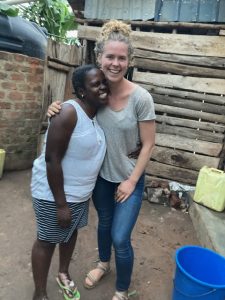 When Poline happily received her filter, she immediately decided that she wanted to save up the money that was previously spent on charcoal or fuel to boil water. After she collected enough money, she was able to start a small restaurant in the main street of her town.
When Poline happily received her filter, she immediately decided that she wanted to save up the money that was previously spent on charcoal or fuel to boil water. After she collected enough money, she was able to start a small restaurant in the main street of her town.
She now runs a successful restaurant where she serves big meals and safe water to all customers, mainly working individuals that come for lunch break. Poline loves the social interaction she has with her clients and loves her work as a cook and host.
This experience changed me.
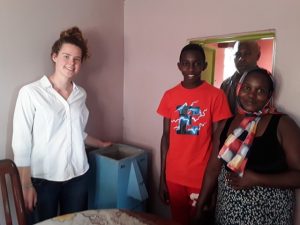 It has been a privilege to see the effect these filters can have on people’s lives, but at the same time it was very confronting and painful as I realised that every individual uses 129 litres of clean water a day in the Netherlands and 142 in the UK, mostly simply to flush our toilets. Of course, I was aware of this already, but seeing another side of water consumption first-hand beats any information received during class or in the newspaper. This is the main reason that motivated me to build a compost toilet when I came back home.
It has been a privilege to see the effect these filters can have on people’s lives, but at the same time it was very confronting and painful as I realised that every individual uses 129 litres of clean water a day in the Netherlands and 142 in the UK, mostly simply to flush our toilets. Of course, I was aware of this already, but seeing another side of water consumption first-hand beats any information received during class or in the newspaper. This is the main reason that motivated me to build a compost toilet when I came back home.
Furthermore, working on this research showed me that behaviour cannot just be explained by responses of beneficiaries and looking at the direct symptoms. Behaviour is rooted much deeper, and only if we manage to reach these underlying factors, we will figure out what is really going on and what can be done to improve a situation.
What really stood out for me were ways in which most beneficiaries were able to use their filter for more than safe drinking water for their own family. They shared the water with workers, taxi drivers, and even schools and churches, and a few others have invested in the future of their families by starting a small business.
Author
-
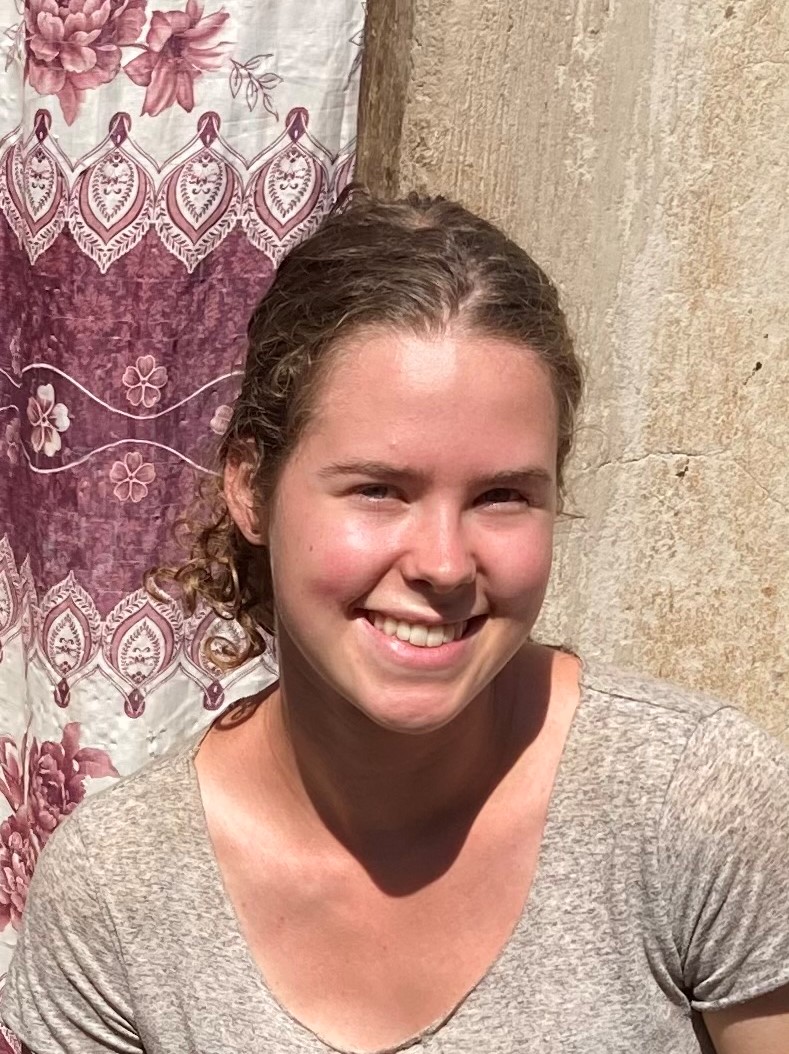
Aniek is a university student in The Netherlands who has a passion for social and environmental justice. She spent five weeks in Uganda interviewing BSF users for her university dissertation project.
View all posts

